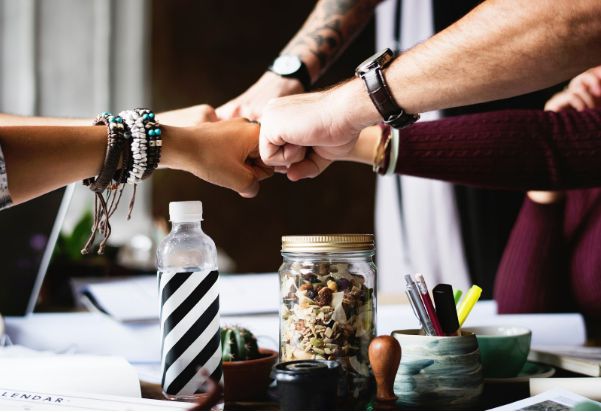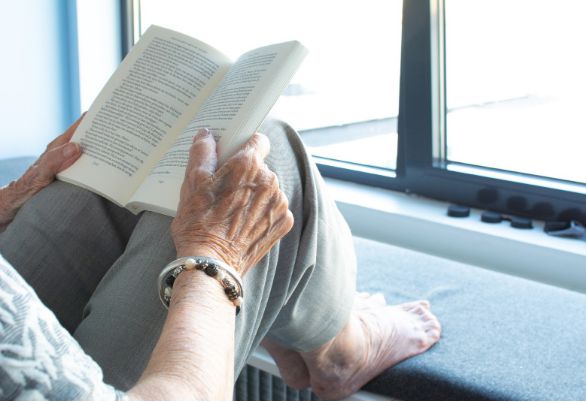
How To Help A Loved One In Recovery
People with addictions are often afraid to approach their loved ones for help. They fear that they will be looked down on, vilified for making poor choices, and rejected. They are afraid that their family members will be ashamed of them, and that they will not love them anymore.
This frequently prevents addicts from seeking help, which is a shame, because those who do approach family members are so often overwhelmed by the love and support they receive. Many people with addictions have told stories about loved ones surrounding them with love, protecting them from the outside world, and getting them the help they need.
Why Are Loved Ones Important In The Recovery Process?
It has been said that no man is an island, and that is certainly true of addicts in recovery. Addiction does not only affect the addict: it also affects those who surround the addict, particularly close friends and family members.
Exactly what those impacts are depends on the family, but they may include the following:
- PTSD resulting from incidents of abuse
- Fear for the safety of self or children
- Financial worries resulting from money being used to fuel the addiction
- A sense of loss following the breakdown of the relationship
And so, when the addict goes into recovery, it’s really the addict and their inner circle who have to heal. In most cases, an inpatient rehab setting is ideal for this: the addict is in a safe place where they can focus on the work they have to do as an individual, and family members and close friends have the time and space to dedicate to themselves. Best of all, loved ones can actively participate in the rehab process by attending family therapy sessions.
What Happens During Family Therapy?
One of the big losses that come from an addiction is a loss of trust. Loved ones who have been burned are likely to resist overtures by the addict to “fix things”.
But with the help of a trained family therapist who has the benefit of being impartial, the addict and their loved ones can start to move closer to healing their relationship.
Some skills and tools that the addict and family can learn include the following:
- Communication skills
- Conflict resolution skills
- Stress management
- Confronting challenges as a unified team
Some family therapy sessions include the addict and the entire group of loved ones. Others may involve one or two people, and some may even be one-on-one sessions conducted for the purpose of delving into specific issues.
Related article: The Advantages of a Growth Mindset for Addiction Recovery
What Else Can Loved Ones Do To Support The Recovering Addict?
Taking the addict to rehab and showing up for your scheduled family therapy sessions are two important steps, but support for your addicted loved one does not end there. There are some other things you can do – not only for the addict but for yourself.
Education
There is truth is the expression, “Knowledge is power.” The more we understand something, the less afraid of it we are. One of the key things you can do is learn as much as you can about addiction, and specifically, about your loved one’s unique path to and through addiction.
This education can take several forms:
- Education sessions and workshops run by the rehab centre
- Online and in-person support groups for loved ones of addicts
- Various online resources that educate about the effects of drugs
- Mental health resources that can help you understand the link between mental illness and addiction
Therapy
While family therapy is a critical part of rehab for most addicts and their loved ones, it may serve you well to seek out individual therapy for yourself.
Under the guidance of a professional therapist, you can learn to understand and process how the addict’s behaviour has impacted you, and how you can move forward from that in a positive way. You can also learn how you may have inadvertently enabled the addict’s behaviour, so you can avoid that in the future.
Support groups
One of the hardest things about having a loved one with an addiction problem is the sense of being alone. Support groups like Al-Anon are there so you can listen to the stories of other families and draw strength from them.
And as you move further along in your own journey, you will be able to provide support to those whose journeys are just starting. Through this community, you will learn new ways to cope and to support your addicted loved one.
Self-care
No one can drink from an empty well. If you are feeling depleted as a result of the addiction, you may not be in any position to take care of anyone. You need to focus on yourself and your own healing, to take the time to replenish your physical and mental reserves.
You can do this in several ways:
- Go away for a few days by yourself. Be beholden to nobody. Go wherever you want, and spend the time doing whatever you want and not worrying about anyone or anything else.
- Rediscover pursuits that you used to enjoy that may have gone by the wayside. This could mean more time with friends, going back to art or dance classes, or resurrecting a love of reading.
- If you have been under stress, your physical health may have suffered. Get your strength back by following a nutritious eating plan and getting regular exercise. This can help your mental health as well: few things can lift the soul like a gentle walk in a scenic location.
- Allow yourself to cry, and to feel the sadness and despair that you may be feeling. By acknowledging how you feel, you will be better able to process those emotions.
- Consider trying meditation or mindfulness practices. These are tools for calming your mind and reducing stress.
How To Start The Recovery Process
In many cases, it is not the addict who makes the first call for help, it is a family member or close friend. If you have a loved one who is struggling with addiction, and you don’t know how to approach them about getting help, you can make use of the professional intervention services offered by addiction rehab facilities.
Contact 1000 Islands Addiction Rehab & Treatment Centre for addiction treatment programs.
Related article: How to Choose the Right Addiction Treatment Service



